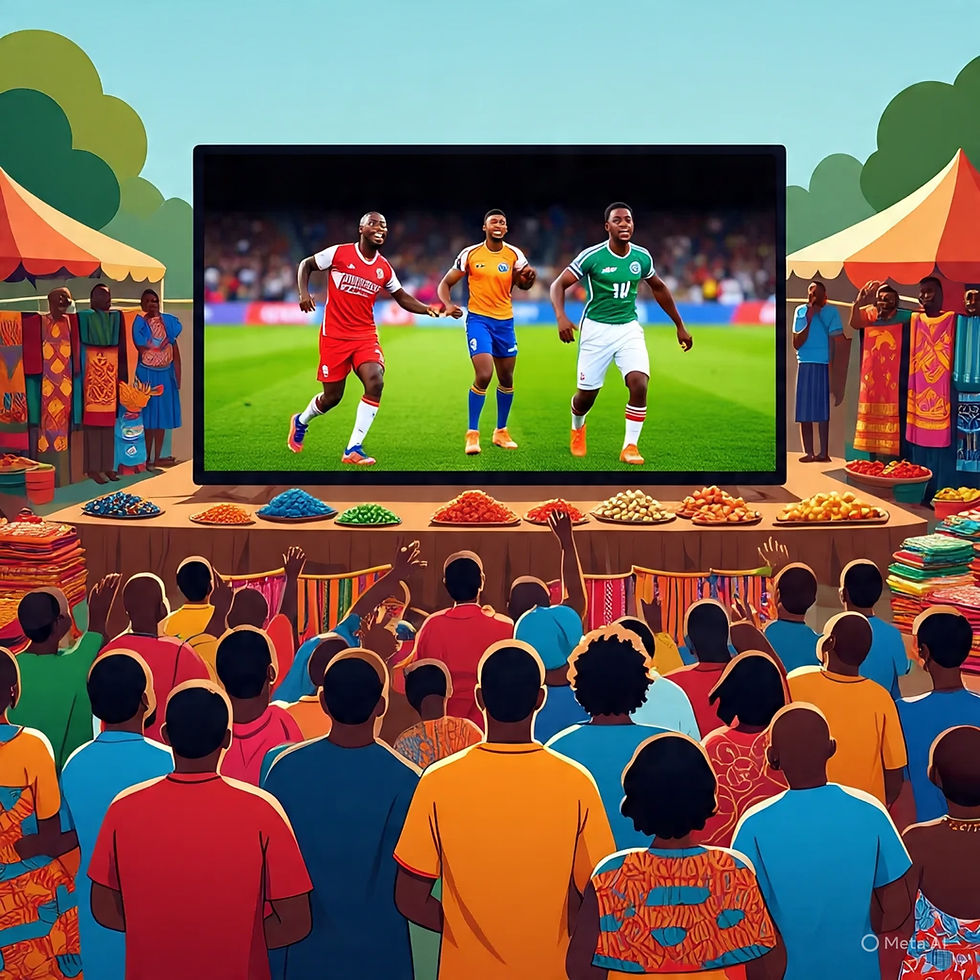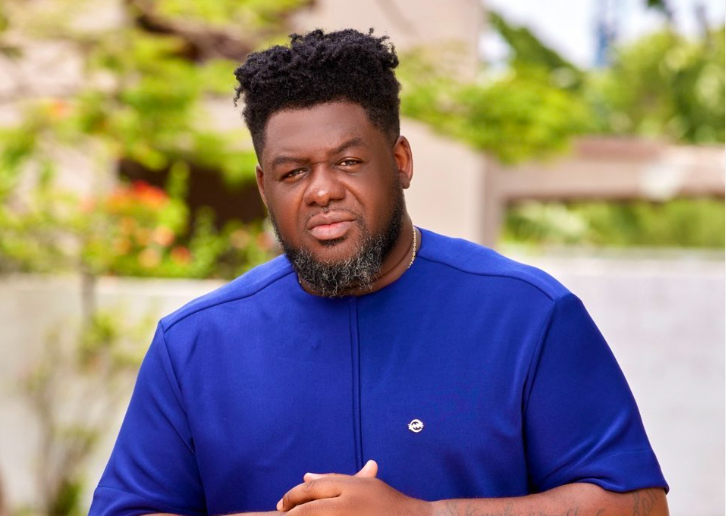How Major Labels Treat African Musicians vs. American and European Artists
- orpmarketing
- May 28, 2025
- 5 min read

The music industry, a global juggernaut, thrives on talent, creativity, and cultural exchange. Yet, beneath the surface of chart-topping hits and glamorous award shows, there’s a stark divide in how artists are treated based on their origins. Major record labels like Universal Music Group (UMG), Sony, and Warner Music dominate the industry, shaping the careers of countless musicians. But the experiences of African musicians often differ significantly from those of their American and European counterparts. Let’s dive into this, exploring the dynamics, the disparities, and the possible reasons behind them. It’s a messy, complicated picture, but one worth unpacking with a clear head and a critical eye.
The Landscape: African Musicians in the Global Music Industry
African musicians have undeniably shaped global music. From the syncopated rhythms of Afrobeat pioneers like Fela Kuti to the modern Afrobeats explosion led by artists like Burna Boy, Wizkid, and Davido, African sounds have permeated genres like hip-hop, pop, and R&B. The influence is deep—think of the polyrhythms in jazz or the call-and-response patterns in blues, both rooted in African traditions brought to the Americas during the slave trade. Despite this, African artists often face systemic barriers when engaging with major labels like Universal Music.
For starters, African musicians are frequently signed to international labels under less favorable terms than their Western peers. Contracts can be exploitative, with lower royalty rates and clauses that limit creative control. A 2021 report highlighted how African artists, particularly those in Sub-Saharan Africa, often receive advances that are a fraction of what American or European artists might expect for similar market potential. Why? Well, it’s partly because labels view African markets as “emerging” or “riskier,” despite the continent’s growing digital music consumption and vibrant live music scenes. The assumption seems to be that African artists are a gamble, while Western artists are a safer bet.
Then there’s the issue of genre pigeonholing. African artists are often pushed into “world music” or “Afrobeats” categories, regardless of their actual style. This limits their exposure to broader audiences and mainstream charts, which are often dominated by pop, rock, or hip-hop—genres where American and European artists are more readily promoted. For example, Burna Boy’s genre-blending work, which spans reggae, dancehall, and pop, is often reduced to “Afrobeats” in Western markets, a catch-all term that can feel reductive. Meanwhile, an American artist like The Weeknd, who also blends genres, is marketed as a global pop star with no such niche constraints.
Treatment of American and European Artists: A Different Story
Contrast this with how Universal and other majors treat American and European artists. These musicians often benefit from larger marketing budgets, better access to top-tier producers, and more aggressive promotion on global platforms like Spotify, Apple Music, and radio. Take Taylor Swift, signed to Universal’s Republic Records. Her albums receive massive, coordinated campaigns—billboards, social media blitzes, and high-profile collaborations. European artists like Ed Sheeran or Dua Lipa enjoy similar treatment, with their music positioned as universal, not confined to a regional or ethnic niche.
American and European artists also tend to have more negotiating power. They’re more likely to secure contracts with higher royalty percentages, retain some ownership of their masters, or at least have legal teams to advocate for them. This isn’t just about star power; it’s about systemic advantages. Western artists operate in markets with established infrastructures—reliable legal systems, accessible entertainment lawyers, and a long history of music industry precedent. African artists, especially those based on the continent, often lack this ecosystem. Many don’t have access to sophisticated legal representation, making them more vulnerable to predatory deals.
There’s also a cultural bias at play. Labels often prioritize Western artists because their music aligns with what’s already dominant in global markets. Pop, rock, and hip-hop are seen as “universal,” while African genres, even when massively popular, are treated as exotic or niche. This isn’t just a business decision; it reflects a lingering colonial mindset that undervalues African cultural contributions. Historically, this echoes how African American artists were marginalized in the early 20th century, with white executives profiting off their work while offering minimal compensation.
Why the Disparity? Unpacking the Reasons
So, what’s driving this unequal treatment? It’s a mix of economics, systemic bias, and structural issues. Let’s break it down.
Market Perceptions and Economic BiasLabels like Universal often view African markets as less lucrative, despite evidence to the contrary. Africa’s music streaming revenue is projected to hit $500 million by 2025, with Nigeria and South Africa leading the charge. Yet, the continent is still seen as a “developing” market, which translates to lower budgets for African artists. Labels argue that infrastructure challenges—unreliable internet, piracy, or fragmented distribution networks—justify smaller investments. But this ignores the reality: African artists like Davido regularly sell out arenas globally, and Afrobeats streams in the billions on Spotify. The “risk” narrative feels more like an excuse than a fact.
Colonial Legacy and Cultural BiasThe music industry’s roots are steeped in colonial dynamics. During the colonial era, European powers suppressed traditional African music, imposing Western styles and instruments. This legacy lingers in how African artists are perceived today. Their music is often framed as “ethnic” or “traditional,” which can diminish its commercial value in the eyes of Western executives. Meanwhile, American and European artists are seen as the standard-bearers of “modern” music, even when their work borrows heavily from African influences (looking at you, Paul Simon’s Graceland).
Access to Resources and RepresentationAfrican artists often lack the infrastructure that Western artists take for granted. In the U.S. or Europe, musicians can tap into established networks of managers, lawyers, and publicists. In many African countries, these systems are nascent or nonexistent. This makes it easier for labels to offer unfavorable terms, knowing artists may have little recourse. For instance, a 2020 BMG Rights Management review found “significant” racial disparities in royalty payouts to Black artists, including those of African descent, pointing to systemic issues in contract fairness.
Global Distribution and Platform BiasStreaming platforms, while democratizing access, aren’t immune to bias. Algorithms often favor Western artists because their music aligns with what’s already popular in key markets like the U.S. and Europe. African artists, even global stars, struggle to break into curated playlists or radio rotations in these regions. Labels, aware of this, allocate fewer resources to promoting African artists on these platforms, perpetuating a cycle where their music remains underrepresented.
A Path Forward: Bridging the Gap
The disparities are real, but they’re not insurmountable. Some African artists are already challenging the status quo. Wizkid’s collaboration with Drake on “One Dance” and Burna Boy’s Grammy-winning Twice as Tall show how African musicians can leverage global platforms to demand better treatment. Independent labels and artist-owned platforms, like Nigeria’s Mavin Records, are also empowering artists to retain more control.
Labels like Universal could take concrete steps to level the playing field:
Fairer Contracts: Offer African artists royalty rates and advances comparable to Western artists, with transparent terms.
Investment in African Markets: Build infrastructure like recording studios and distribution networks in key African cities.
Diverse Representation: Hire more African executives and decision-makers to counter cultural biases in boardrooms.
Global Promotion: Push African artists into mainstream categories, not just “world music” or “Afrobeats” silos.
Artists, too, can play a role by building independent networks and using digital platforms to bypass traditional gatekeepers. Social media and streaming have already given African musicians unprecedented reach—think of how TikTok has propelled Afrobeats tracks to global virality.
Wrapping Up
The music industry’s treatment of African musicians reflects a mix of economic calculations, cultural biases, and historical legacies. While American and European artists enjoy systemic advantages—better contracts, bigger budgets, and broader promotion—African artists are often undervalued, despite their immense contributions to global music. The reasons are complex, rooted in colonial mindsets, market misconceptions, and unequal access to resources. But change is possible. As African artists continue to dominate global charts and build their own platforms, they’re forcing the industry to reckon with its inequities. It’s not just about fairness—it’s about recognizing that African music isn’t just a niche; it’s the heartbeat of modern sound.




Comments